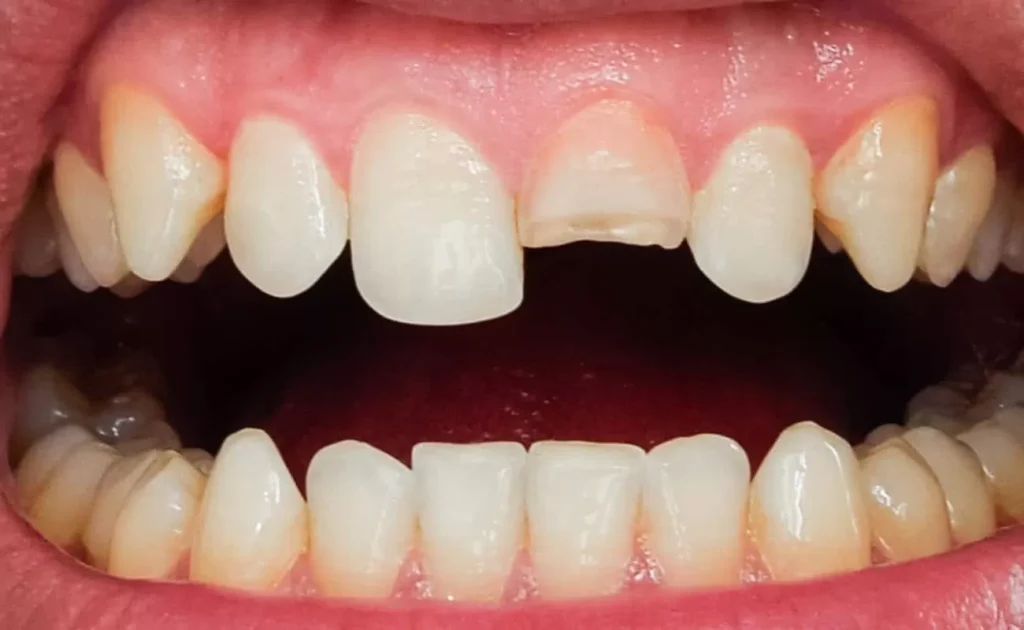A cracked tooth can cause discomfort and lead to serious issues, such as infection or tooth loss, if left untreated. Cracked teeth may result from chewing hard foods, grinding teeth, or injuries. Warning signs include sensitivity, pain when chewing, or visible cracks. Prompt dental care is beneficial in preventing further damage and avoiding invasive treatments, such as root canals. Regular checkups and good oral hygiene can help reduce the risk and maintain the health of your smile.
What Are The Symptoms of a Cracked Tooth?
Cracked teeth can be challenging to diagnose, as the symptoms often vary and may not be consistent. Several common signs could indicate a cracked tooth. These include:
- Intermittent pain when biting or chewing, which might come and go without warning.
- Sensitivity to hot, cold, or sweet foods and drinks, often more noticeable in the affected area.
- Sharp or sudden pain during chewing, particularly when releasing biting pressure.
- Swelling or tenderness around the affected tooth, which can sometimes be accompanied by gum irritation.
- Unpredictable discomfort, where pain occurs only occasionally and may not seem tied to a specific cause.
Cracked teeth can worsen over time if left untreated, potentially leading to further complications. If you recognize any of these symptoms, it’s beneficial to have your tooth evaluated by a dental professional as soon as possible. Early intervention can help preserve your tooth and prevent more extensive treatment down the road.
What Are The Risk Factors for Cracked Teeth
Certain factors can increase the likelihood of developing a cracked tooth, and understanding these risks can help prevent potential issues. Age is a significant factor, as individuals between 30 and 50 are more susceptible due to years of wear and tear that weaken the enamel. Teeth grinding or clenching also exerts significant pressure on teeth, leading to cracks over time. Similarly, teeth with large fillings may be structurally weaker, making them more prone to damage. Trauma from accidents, falls, or direct blows to the mouth is another common cause of cracks.
Abrupt temperature changes, such as consuming hot foods or drinks followed by icy items, can cause teeth to expand and contract, potentially cracking the enamel. Additionally, chewing on hard objects like ice, hard candies, or even non-food items such as pens can place excessive stress on teeth, increasing the risk of cracks. Recognizing these risk factors is beneficial for maintaining strong, healthy teeth.
When Does a Cracked Tooth Require Attention?
Not all cracks require immediate intervention. Some may be superficial and not pose a threat to the tooth’s structure. However, cracks that extend deeper into the enamel or the root can lead to infections, tooth loss, or further decay if untreated. If you notice persistent symptoms, such as pain or sensitivity, or if swelling develops, prompt evaluation from a dental specialist is advisable.
Protect Your Dental Health
Regular dental check-ups and mindful habits, such as avoiding hard foods and managing teeth grinding, can greatly reduce the likelihood of developing cracked teeth. If you suspect a cracked tooth, early assessment can prevent more severe complications. To learn more about treatment options and how to maintain your oral health, reach out to an endodontic clinic for expert care.

